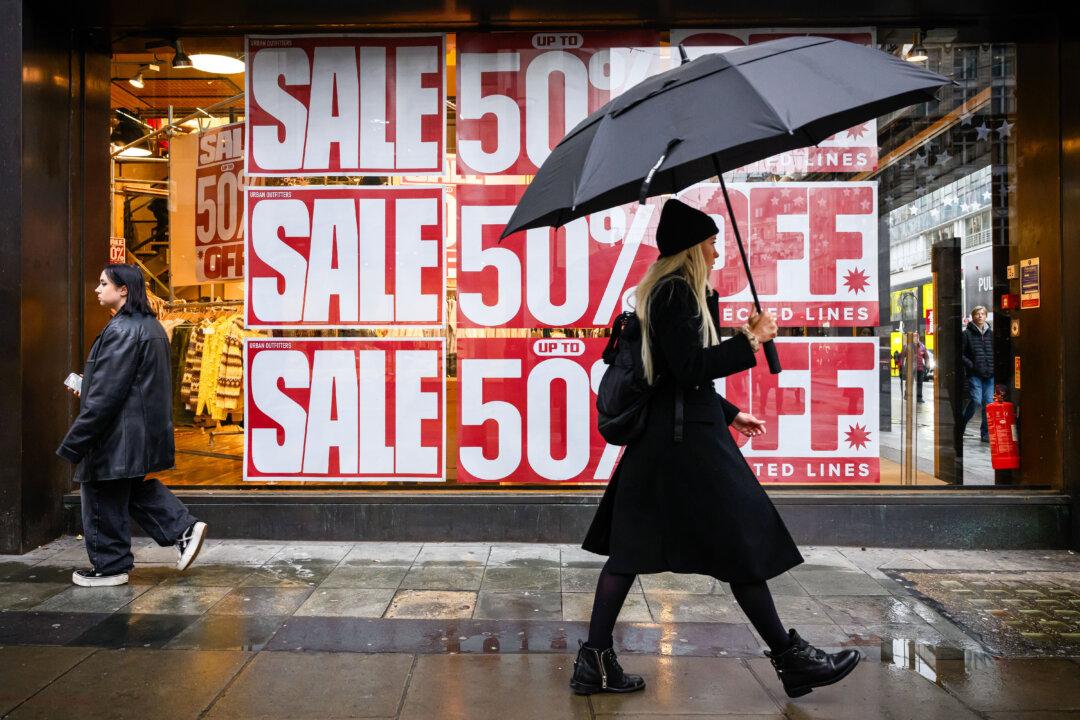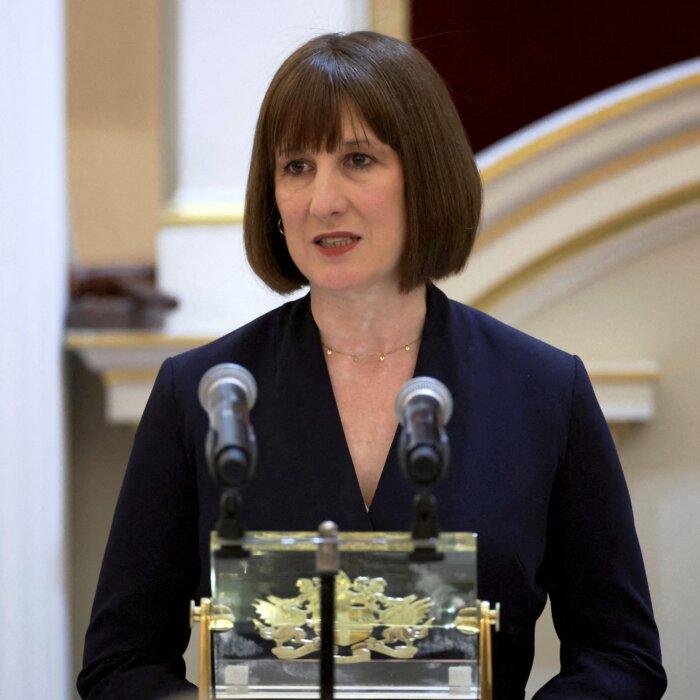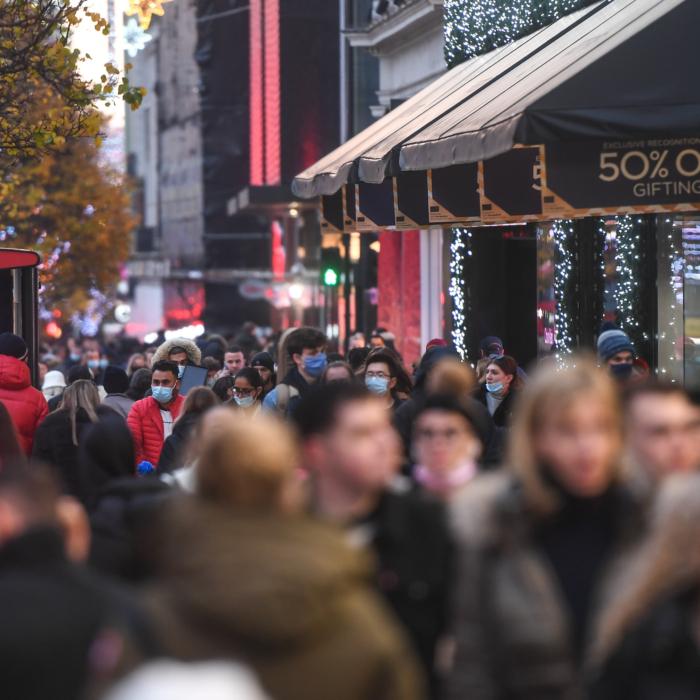A batch of new economic figures has showed government borrowing fall to £11.2 billion in November, while retail sales grew by 0.2 percent.
Data released by the Office of National Statistics (ONS) on Friday reported the lowest November borrowing for three years.
The public sector has spent more than it received in taxes and other income. Out of £11.2 billion, the current budget deficit made up £6.8 billion, £3.5 billion less than in November last year.
Central government’s borrowing, which forms the largest part of the public sector and includes government departments such as HM Revenue and Customs and the Ministry of Defence, stood at £6.7 billion.
The total expenditure by central government was £88.2 billion, a decrease of £0.2 billion compared to November 2023.
Contributing to this overall decrease were falls in interest payable on central government’s debt. However, departmental spending, welfare payments, and other public services spending all increased in November.
The ONS deputy director for public sector finances, Jessica Barnaby, said: “Borrowing this month was over £3 billion less than this time last year and the lowest November borrowing for three years.
Economic Outlook
The borrowing figures come as economic growth in the UK remains weak and inflation—the rate at which prices increase over time—is rising at its fastest pace since March.The deputy chief UK economist at Capital Economics, Ruth Gregory, said that “borrowing undershooting expectations in November” meant that “Christmas has come early” for Chancellor Rachel Reeves.
“But the weakening in the economy and recent rises in market interest rates suggests the government will still struggle to bring the deficit down as quickly as planned. That raises the chances that extra revenue-raising tax hikes or spending cuts will be required,” she added.
The bank downgraded its growth forecast from 0.3 percent for the final three months of 2024 to zero growth. This could pose a setback for the Labour government, which has prioritised boosting the UK economy as a central goal.
However, according to the PA news agency, Chief Secretary to the Treasury Darren Jones said that Labour inherited deteriorating public services and a significant financial deficit of £22 billion when it took office.
Retail Sales
Separate figures from the ONS showed retail sales rose slightly last month, supported by growth in sales at supermarkets.Sales volumes rose by 0.2 percent, following a fall of 0.7 percent in October. However, when compared to the pre-COVID-19 pandemic period, retail sales were down by 1.6 percent.
Stronger figures from food stores sales came for the first time in three months, with a 0.5 percent rise.
Total sales in clothing, household, and other non-food stores rose by 0.2 percent over the month. This was offset by a fall in the clothing sub-sector, where sales fell by 2.6 percent and were at their lowest level since January 2022.
This decline in non-food spending is set against rising energy costs, driven by increases in Ofgem’s energy price cap in October and November.
Sarah Bradbury, chief executive of analysts IGD, has observed that while more shoppers are planning to spend freely this Christmas compared to last year, cautious optimism prevails.
Despite a 5 percent increase in those planning to spend as they wish, it’s unlikely to be a bumper Christmas for all, she said.







